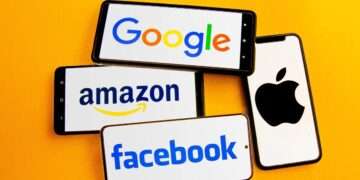In today’s digital age, it is clear that our approach to literature has drastically changed. With the rise of e-readers and online articles, physical books have become less and less popular. Although digital reading does have its advantages, such as the convenience of on-the-go access, we must not forget the unique benefits that physical books offer. Not only do tangible books provide a tactile experience, allowing us to feel the pages and the weight of the text in our hands, but they also offer psychological advantages. Physical books allow us to take our time with the material, to pause and reflect on each page, and even to make notes in the margins. Furthermore, physical books provide a sense of connection; they can be gifted or shared with friends, and even passed down through generations. In contrast, digital books are not as easily shared, and lack the same sentimental value. Ultimately, physical books offer a level of depth and satisfaction that digital books simply cannot replicate.
The Tangible Joy of Physical Books
The tangible joy of physical books is undeniable; there is something magical about the feeling of a book in your hands, the smell of the pages, and the satisfaction of turning them as you read. The experience of curling up with a good book, or having it in your lap as you walk to work, is something that cannot be replicated with an electronic device. There is a kind of intimacy that comes with reading a physical book, and the connection it brings between readers and authors that cannot be found in digital formats. Not only that, but physical books provide a unique sense of ownership and accomplishment, as they can be kept for years, and even passed down to future generations. Ultimately, the decline of physical books means more than just the loss of pages; it means the loss of a deep-seated connection to literature, and the unique experience of reading a physical book. Below are some of the interesting facts:

- Sensory Experience: The tactile sensation of turning a page, the smell of a new (or old) book, and the weight of a volume in our hands provide sensory experiences that are missing in digital formats. These sensations can enhance our connection to a story, grounding it in reality.
- Retention and Comprehension: Studies have suggested that readers of physical books have better retention and comprehension than those who read digitally. The spatial awareness of where a piece of information was on a page can help readers recall that information later.
- Lesser Distractions: With physical books, there’s a lesser chance of being distracted by notifications, pop-ups, or the temptation to switch between apps. This undisturbed immersion can lead to deeper engagement with the content.
- Better Sleep: Screen time, especially before bedtime, can interfere with sleep quality because of the blue light emitted by electronic devices. Reading a physical book can be a relaxing pre-sleep ritual without the negative consequences for our sleep cycle.

The Digital Shift
So, with all these benefits, why is the age-old tradition of reading physical books seeing a decline?
- Convenience: Digital books allow readers to carry entire libraries in their pockets. This convenience, combined with instant access to any title, has significantly influenced the shift.
- Interactivity: E-readers and tablets can make reading more interactive with built-in dictionaries, note-taking capabilities, and hyperlinks to external content.
- Cost and Environment: Digital books can be more cost-effective, and there’s an argument about the environmental impact of printing physical books.
- Space: For those living in urban spaces with limited storage, keeping vast collections of physical books might not be feasible.
- Changing Cultural Norms: The integration of technology into every facet of our lives has created a culture shift. The younger generation, being digital natives, are more inclined towards digital content consumption.

Conclusion
While the appeal of digital reading is clear, it’s crucial to recognize what might be lost in this transition. The joy of visiting a library or bookstore, the pleasure of sharing a beloved book with a friend, or the satisfaction of placing a finished book on a shelf are experiences that digital reading can’t replicate.
As with most things, balance is key. Embracing digital reading for its convenience and efficiency, while also making time for the sensory pleasure and cognitive benefits of physical books, can offer the best of both worlds. After all, the essence of reading is not just about the medium but the journey of the mind and soul.










































